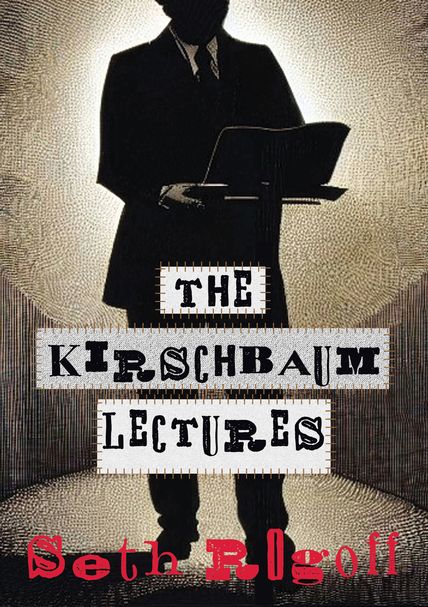
Sy Kirschbaum, renowned for his translations of major European writers like Jan Horak and Anton Grassfeld, has arrived at the college to teach a course called Introduction to Literature. He’s come from the Czech countryside, where he’d been undergoing treatment by Dr. L. Hruška for a psychological breakdown connected to the seventeen-year-long process of finishing Horak’s epic novel of Cold War dissent. Standing before a group of disoriented but enthralled students, facing down an increasingly tyrannical dean, Kirschbaum embarks on a twelve-week journey into his past and toward the heart of his literary life, 1990s Berlin, where art and dreams surged with the raw energy of utopian aspirations. Sy’s lectures cross treacherous narrative terrain and spiral toward the shocking revelation of an unhealed wound, from which literature itself, in its infinity of interwoven forms, seems to pulsate.
Listen to an interview with the author on the Beyond the Zero Podcast.
Notices
“Sy Kirschbaum teaches literature the only way it should be taught: borderline psychotically, in a barely repressed rage, baffled by the line separating himself from his subject matter. As he ushers us from Berlin to the Bible and back, circling dark truths or a permanent breakdown, Seth Rogoff’s dazzling creation conjures marvelous books with a Borgesian flick of the wrist and glosses them with gleeful Nabokovian precision.”
—Adam Ehrlich Sachs, author of The Organs of Sense
“Seth Rogoff is a hell of a writer, and The Kirschbaum Lectures is a funny, irreverent, accurate (nails academia to the wall) and wonderfully structured novel that doesn’t, thank god, take itself too seriously–which makes it all the more deadly serious. I enjoyed the book immensely.”
—Peter Orner, author of Still No Word from You
“In this fantastic novel composed of lectures on fiction, Seth Rogoff cracks open the mind of Sy Kirschbaum, a translator who wanders through his memories of Berlin, the city that made him a translator, as well as a character in the book of a more famous novelist. The dean’s teapot tyranny looms over art and literature; the tension between academia’s professionalism and its claim to literary work pulses beneath these ‘failed’ lectures. Chasing the ‘metaphysical unknown’ through the architectural physics of Berlin’s burrows, encountering female characters who barely exist outside the writers’ Freudian impulse to invent them, inhabiting a temporality that plumbs underground texts from the Nazi period, Kirschbaum translates himself into the fictions and conspiracies of the past. Psychiatrists appear as modern solutions to eschatological problems, but the counter-story of the lectures feels more real to Kirschbaum than the experience of his life. This is a book built from cedar resin, the hardened sap of wounded cedars, the conflagration of esoterica and eschatology. Gathering the past in ‘a literary text perched on the border between truth and lie,’ Rogoff combines radiant angelogies, demonologies, literary katabasis, diagnoses like ’neurotic anarchism’, and the history of anarchist artistic responses to censorship. Writers thieve from each others’ lives to invent themselves; history plagiarizes its own evil. No one is redeemed; nothing is saved–the fiction is all of us who believe fiction exists.”
—Alina Stefanescu, author of Dor
“[W]itty, labyrinthine …. an entertaining literary puzzle; its fascinating web of academic commentary tests the boundaries between fact and fantasy, order and anarchy, and sanity and dreams.”
—Kristin Rabe, in Foreword Reviews
“As The Kirschbaum Lectures proceeds—each chapter is a lecture—Sy’s mental struggles become focused on the dean and the Kafkaesque ‘dean’s assistant.’ At the end of one, he flees the lecture room by a back door while urging his students to run interference for him. Rogoff can be very amusing when he wants to be. Which is not often in The Kirschbaum Lectures, swathed as it is in mists of abstraction that make Last Year in Marienbad look like High Noon…. Have no fear. Rogoff’s apparent disdain for straightforward narrative is more than compensated for by a fluid writing style that easily charms the reader into following him down any and all rabbit holes…. The Kirschbaum Lectures may be weird, but they are certainly wonderful.”
—Thomas Urquhart, in Portland Press Herald
